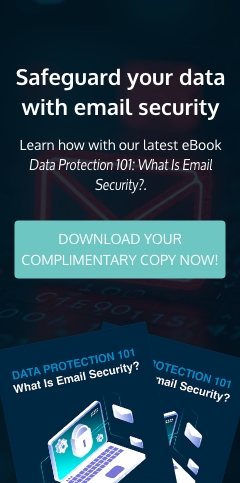If cybersecurity isn’t at the forefront of your technology strategy, then it definitely should be. Small- and medium-sized businesses are a favorite target for hackers because they manage sensitive information and are not as well fortified as large corporations. You owe it to the future of your business and the safety of your workers and customers to take every possible step to prevent and mitigate data breaches. Here are five things that every business should do to protect its data:
#1. Regular Network Audits
Maintaining complete visibility into your network and everything connected to it is an important step in securing your data. Conducting regular audits, particularly after you’ve made any changes to the network infrastructure, will help you identify any vulnerabilities. Potential problems include devices with outdated firmware, unsecured IoT devices, and computers with unpatched operating systems.
#2. Ongoing Security Training
Data breaches can also be caused by employee negligence like recycling weak passwords, clicking on suspicious links, or leaving devices unattended in public spaces.
You’ll be doing both your business and your employees a favor by implementing an ongoing security awareness training program. Each training session should teach employees about email safety, password best practices, data management, and the consequences of noncompliance with security policies. You should also consider simulating real-world attacks to assess how your employees respond to real-world attacks.
#3. Off-Site Disaster Recovery
No matter how vigilant your employees are or how robust your technology is, disaster can strike at any time. Some are completely beyond your control, such as natural disasters or hardware failures, and when they hit, you could lose all your data.
Off-site data backup and disaster recovery will protect your business from any eventuality because you’ll have a fully redundant computing infrastructure to fall back on even if your regular workplace is rendered untenable. You’ll also be able to access your backups from any internet-connected device, allowing you to keep downtime to a minimum.
#4. Mobile Device Management
The unprecedented rise of mobile devices over the past decade may have changed the way people work, but it also adds a host of security risks. After all, mobile devices can easily get lost or stolen.
Mobile device management (MDM) solutions help you enforce your security policies by giving administrators full visibility into their fleet of portable devices, including those owned by employees and enrolled in a bring-your-own-device (BYOD) program. You can even roll out software patches across your devices with just a few clicks of a button.
#5. Round-the-Clock Monitoring
Regardless of what time of day or year it is, bad actors are working around the clock looking for vulnerabilities to exploit, and the majority of successful data breaches occur when they’re least expected.
Network traffic must be monitored 24/7/365 without exception, which is why you need the technology solutions in place to proactively detect and prevent attempted data breaches and other suspicious activity. The most affordable solution is to outsource your network monitoring to a managed services provider (MSP).
NetQuest helps businesses in Baltimore, Annapolis, and Towson keep their data safe with round-the-clock monitoring and helpdesk support. Contact us today to know more about our managed solutions and IT consulting services.
Like This Article?
Sign up below and once a month we'll send you a roundup of our most popular posts


